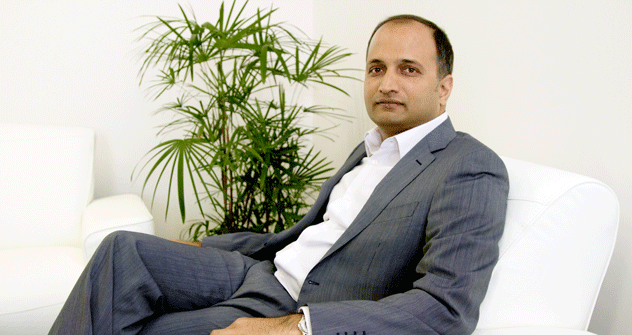Russian market opens up, smell the coffee!

Sudeep Nair, executive director and head of the Moscow office of Food Empire Holdings Ltd. Source: Press Photo
They say a lot can happen over a cup of coffee. Sudeep Nair, executive director and head of the Moscow office of Food Empire Holdings Ltd, a Singapore-headquartered food and beverages company, can’t agree more. His company has, after all, spun an empire of sorts by selling mixed coffee and has scripted a success story in Russia as well.
The Food Empire’s links with Russia hark back to the early 1990s. In those days, the company had some consumer goods electronics trading business with some Russian and Eastern European countries, recalls Nair. They realised that the Russian market was opening up for foreign trade and more and more Russian clients were sourcing for all kinds of products. However, they also realised that pure trading had low margins and did not have much of a future. That ‘s when Nair and his colleagues ventured into the F &B business and started their own brand of coffee mix, MacCoffee, as an experiment in the F&B segment.
“It was a completely new product for Russian consumers then, but a very popular and successful segment in Southeast Asian markets,” says Nair. “We figured that Russia would be a very good window to CIS markets with over 250 million consumers and Russia being the biggest, we set up a small office to start our business. The country had just opened up after decades of communism and consumers were hungry and willing to try new products from other countries after decades of controlled supplies of all products.”
Nair recalls that the Food Empire faced many difficulties like all other foreign companies in those years. This was largely because there was no private sector in Russia which explains the lack of experienced, multilingual staff, constantly changing government rules and regulations and even currency fluctuations. In his opinion, the biggest challenge facing any business is the volatile economic situation in Europe which has led to major currency devaluations. “Sudden devaluation of the rouble versus major currencies would be the most negative factor to affect any business in Russia and also its citizens because it directly relates to lower purchasing power but higher costs of imported things,” says Nair.
The Russian branded F&B market, specially the coffee market, is a relatively young one that started just in 1990s. According to Nair, Russian consumers were primarily tea drinkers and coffee drinkers didn’t have much choice before the 1990s. “After experiencing the taste and wide range of good instant soluble coffee products over the last 15 years, Russian consumers have started trying pure coffee and this segment has been showing good growth over the last few years,” says Nair. “Russians are very open minded and still open to trying new brands and this makes the market very interesting compared to some other markets.” Nair believes another advantage of the Russian market is that it has both channels of trade – organised and traditional retail outlets. This allows brand owners to penetrate the market in stages. Given the diversity and size of the country, a company, he feels, can always launch its brands on a regional or national basis depending on budgets and distribution reach.
Analysing the present state of the Russian F& B market, Nair says it is large enough for new players to make an impact within a short time frame if the right entry strategy is worked out and a proper team is in place. “B2B (business to business) is relatively easier and cheaper for new businesses to enter than B2C (business to consumer) branded segments today in Russia. Opportunities exist in both segments and well-crafted strategy with investments will succeed.”
The Indo-Russian cooperation in F&B business is mainly limited to the business of raw material sales or as a service provider business. Nair however, noted that that most Indian companies in the past have not succeeded in the branded B2C segment in Russia because they have tried to just sell the goods to a local company without developing the brand. “There must be clarity and differentiation on roles of the distributor and brand development. Brands succeed in Russia only when the brand owner takes up full responsibility for managing the brand. This is something that I would recommend,” advises Nair.
All rights reserved by Rossiyskaya Gazeta.
Subscribe
to our newsletter!
Get the week's best stories straight to your inbox